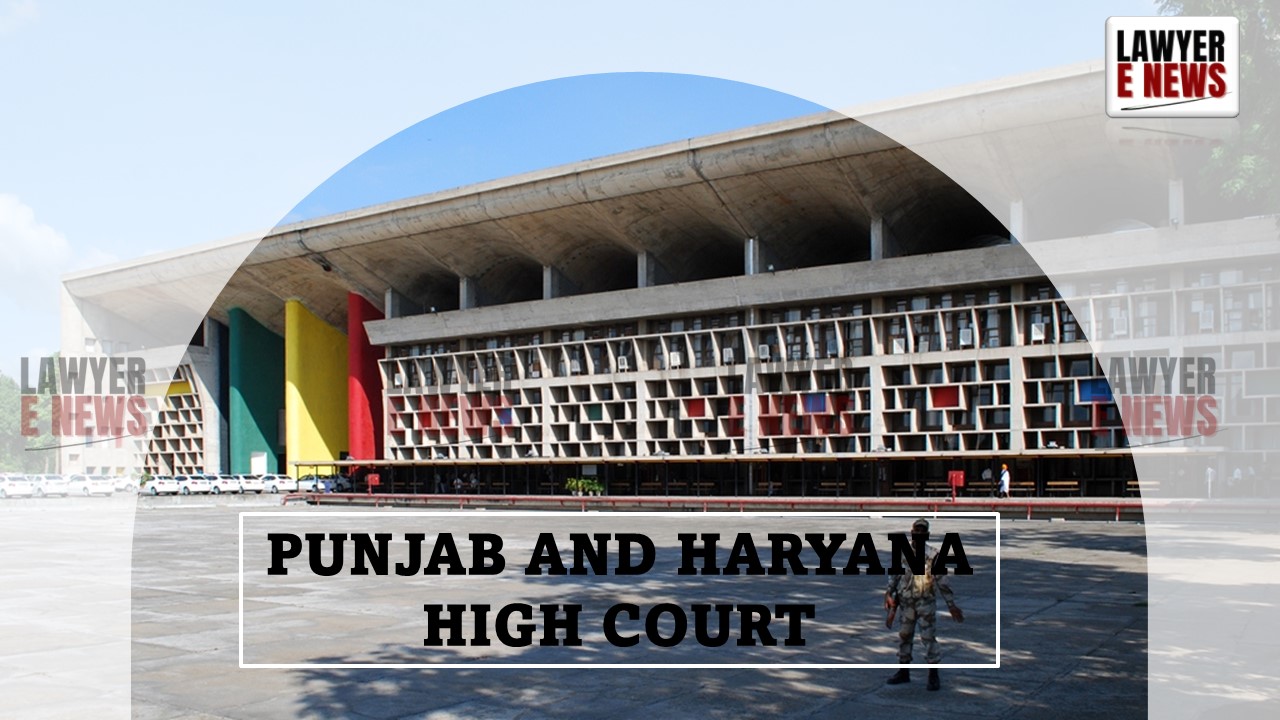-
by Admin
15 February 2026 5:35 AM



Punjab and Haryana High Court dismissed multiple writ petitions challenging the provisional attachment orders (PAO) issued under the Prevention of Money Laundering Act, 2002 (PMLA). The court emphasized the transformative amendments to the PMLA, affirming the inclusion of properties of equivalent value under the definition of "proceeds of crime" and upheld the jurisdictional and procedural compliance of the Enforcement Directorate (ED) under the Act.
The petitioners contested the PAO attaching properties allegedly linked to proceeds of crime, citing violations of PMLA's provisions, including the failure to record “reasons to believe” and the detachment of properties from scheduled offenses. Central to the dispute was whether properties acquired prior to alleged offenses could be provisionally attached and whether statutory procedural requirements under Section 5(1) of PMLA had been met.
The ED contended that substantial evidence pointed to illegal mining activities generating proceeds of crime worth ₹337 crores, routed through dummy entities, and subject to money laundering.
The court upheld the definition of "proceeds of crime" as amended by the 2019 PMLA amendments, which include:
Property directly or indirectly derived from criminal activity.
Property of equivalent value, even if the original proceeds are untraceable or held abroad.
Citing Vijay Madanlal Chaudhary v. Union of India and Axis Bank v. Directorate of Enforcement, the court held that the legislative intent clearly allowed for the attachment of equivalent value properties to curb money laundering effectively. It dismissed the reliance on Seema Garg v. Deputy Director, ED, deeming it no longer good law in light of subsequent Supreme Court rulings.
The petitioners alleged that the ED failed to record sufficient "reasons to believe," a statutory prerequisite under Section 5(1). The court, however, found detailed reasons substantiated by evidence, including:
Seizure of fake e-Rawana bills and dummy entries.
Material discrepancies in mined and sold minerals.
Records of illegal mining and proceeds routed through shell companies.
The court emphasized that the ED’s action was consistent with Section 5(1), and the PAO was subject to further adjudication by the competent authority under Section 8 of PMLA.
The court advised against interfering with the PAO at this provisional stage, highlighting the robust statutory framework for adjudication under PMLA. It reiterated that writ jurisdiction under Article 226 of the Constitution should be sparingly exercised, especially when statutory remedies exist.
The court rejected the claim of delayed forwarding of the PAO to the adjudicating authority, clarifying that procedural timelines must be reasonably construed. The PAO, issued on August 9, 2024, was forwarded on August 12, 2024, accounting for intervening holidays.
The High Court concluded that the PAO satisfied statutory requirements, and sufficient material linked the petitioners’ properties to proceeds of crime. It dismissed the writ petitions while directing the adjudicating authority to proceed independently and uninfluenced by the court’s observations.
This decision reinforces the PMLA's role as a robust tool against financial crimes, validating its expansive interpretation post-amendments. It underscores judicial deference to specialized statutory mechanisms and encourages procedural adherence to protect property rights.
Date of Decision: November 13, 2024
